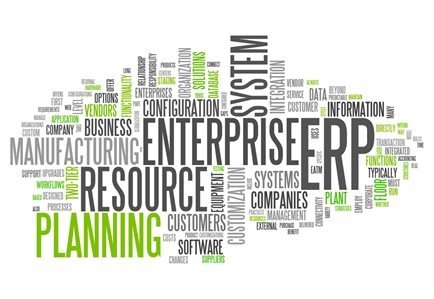Enterprise resource planning has become a different animal in the past few years, especially since the types of assets being procured, deployed and managed are far cries from those of only a decade or so ago. Business leaders have had a wealth of opportunities to refine their ERP capabilities and practices through the use of more integrated, centralized and automated tools, with workflow, content management and other components of general oversight feeding into the resource planning protocols.
In the future, ERP integration will continue to become a bit more important with the passing of each year, as the most efficient companies will be those that focus on establishing a smooth ebb and flow of transactions, reporting and the like. Having an ERP tool that sits in front of workflow management can be especially advantageous for the average company, and the solutions available today make it possible to achieve this seamless experience for employees and decision-makers who are tasked with keeping eyes on every activity taking place.
At the end of the day, it will be up to leaders to provision the right solutions and capitalize on opportunities within ERP integration procedures, centralized management of procurement and resourcing, workflow enablement and more. Partnering with the right vendor of automation software solutions can be the right approach, and more companies from a wider variety of industries are beginning to take this route, especially those that have become more entrenched in the digital commerce era.
Commerce-driven ERP
Matt Train, a language services and international commerce expert, recently wrote a blog post for Business 2 Community in which he discussed some of the reasons why ERP integration has become a critical endeavor for every retailer, though he focused the verbiage on brick-and-mortar stores that are entering the digital landscape. Remember, all signs point to ecommerce being the next stage in general commerce and transaction evolution, with more sales taking place through these channels than ever before.
In fact, the author pointed out that the United States is expected to see roughly $500 billion in annual sales streaming through digital mediums by 2018, while the growth is forecast to continue at a torrid pace for years to come. As for the reasons why ERP integration is critical in digital commerce, Train affirmed that these tools and processes can effectively eliminate data entry, which not only improves efficiency, but also reduces errors, drives accuracy and improves the safety of compliance-bound activities among all companies.
He went so far as to say automated ERP integration with ecommerce platforms is "the most productive business solution," suggesting that it is such because it provides a smoother path toward growth and strengthens the customer experience. Finally, Train argued that cost reduction and process improvements are likely to be seen among companies that achieve a perfect ERP integration project and sustain its functionality over time.
What to look for
Businesses in virtually every industry that are interested in seamless ERP integration should be looking for solutions that are at once non-invasive and intuitive, as well as those which automate workflow package updates and index documents. After all, when ERP integration is necessary, putting in as much effort as possible to get it right will be essential to the successful achievement of centralized, automated and seamless procedures through these tools.
Once ERP integration solutions have been properly configured and implemented into the corporate framework, they will reduce complexity through the act of extending existing business application functionality all through a single platform. To make sure businesses have the best handle possible on ERP, investing in the right integration solutions is a must.






